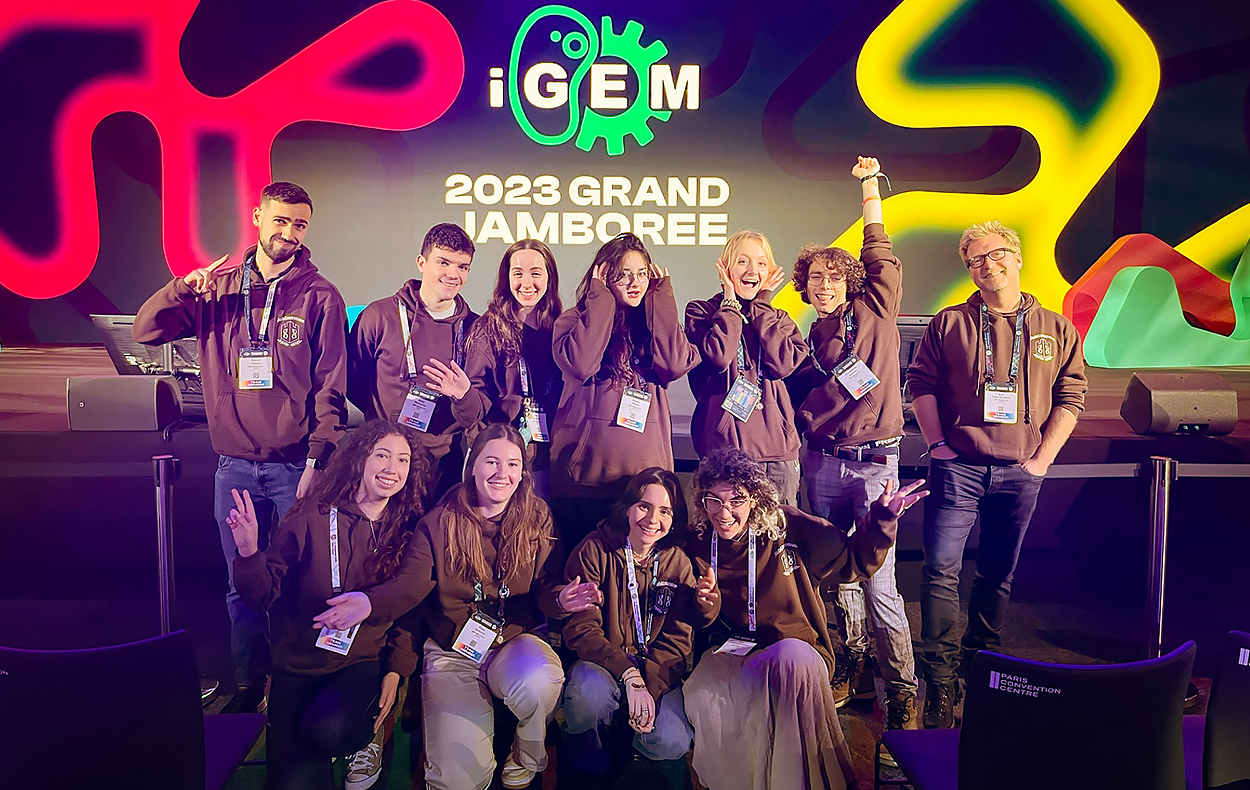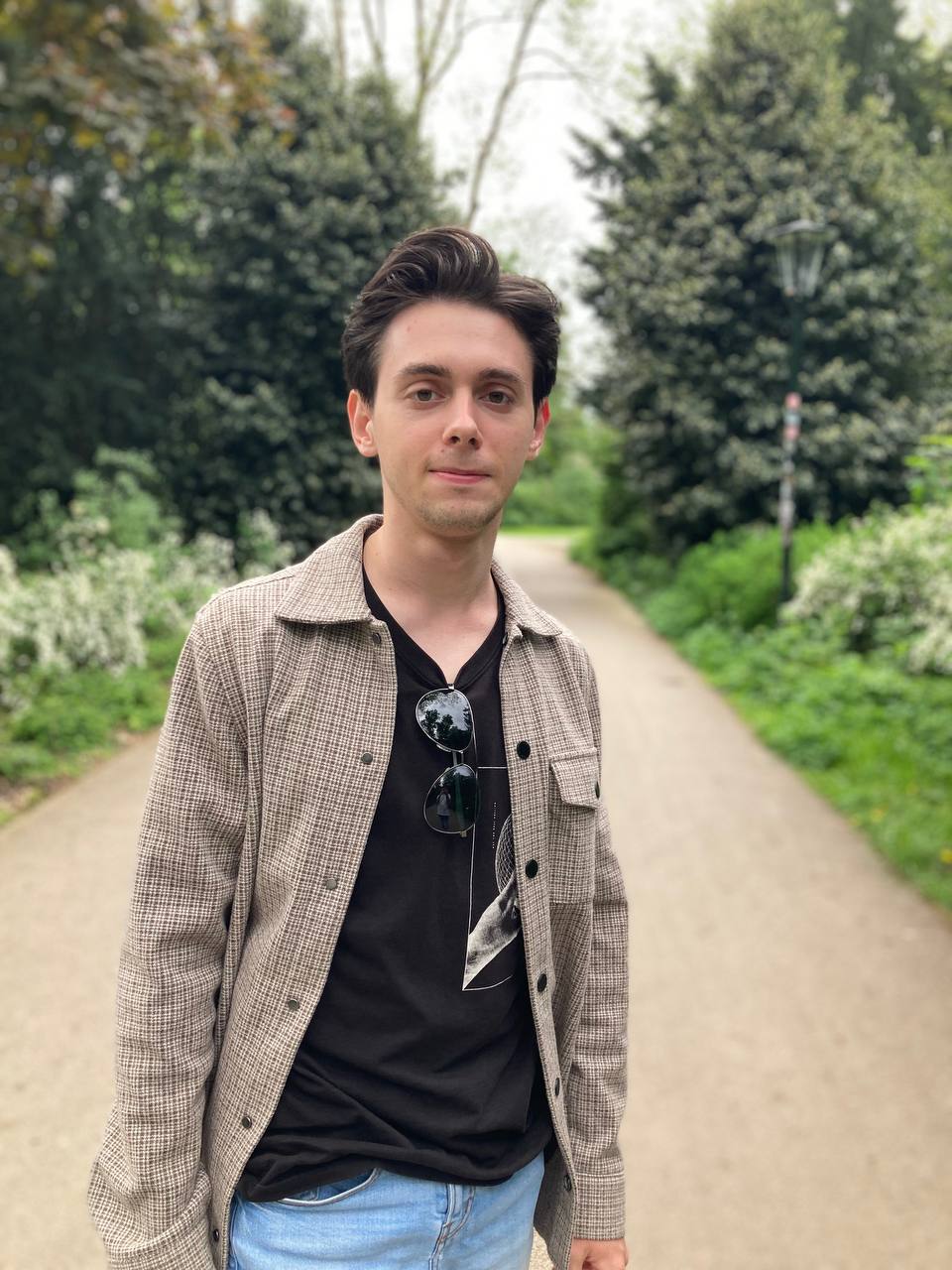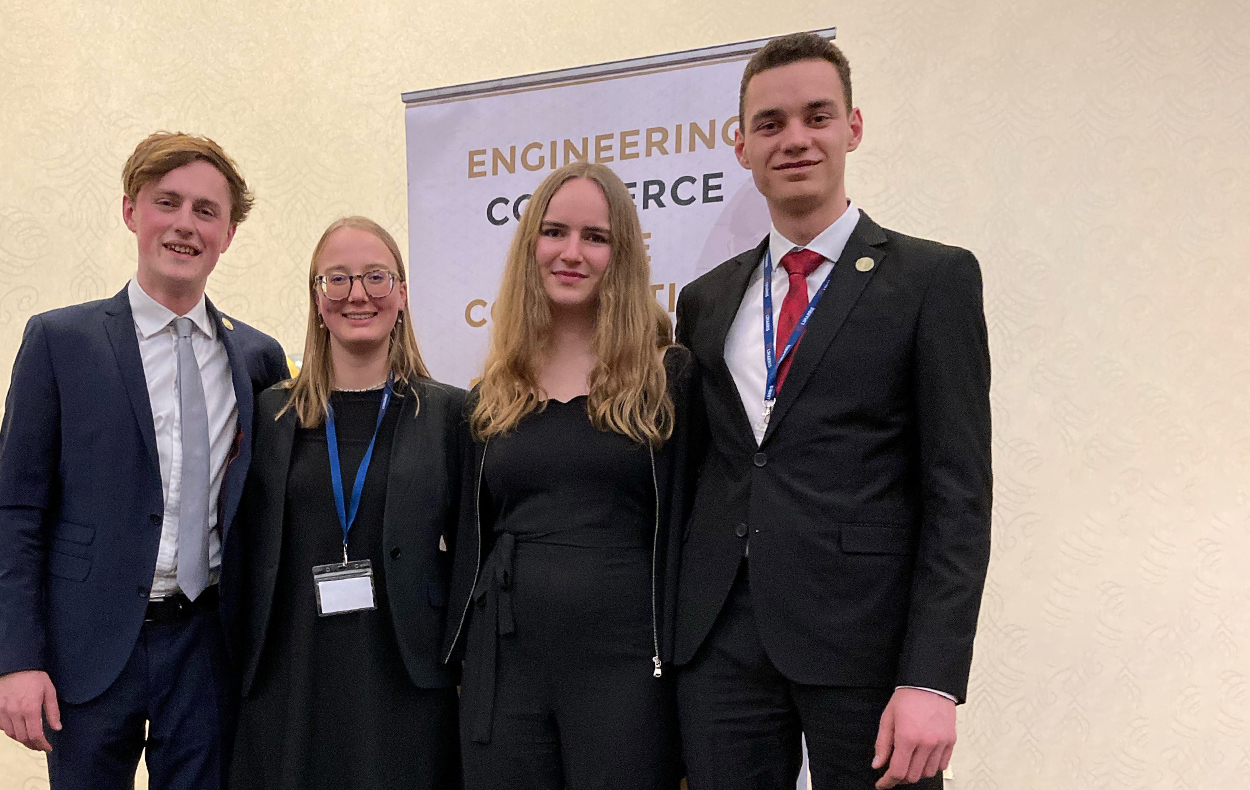What does it take to write a play? UM students found out
End of April, renowned Dutch theatre company Toneelgroep Maastricht offered UM students the opportunity to take part in a playwriting workshop, a Meet & Greet with actors and a visit to A Seagull, an adaptation of the famous play by Anton Chekhov. The play was Dutch spoken, but had English surtitles, which meant the audience could read the English translation on screens above the stage.
The students who registered for the workshop received the English translation of the script, as well as subtitled video introductions in which the director, scenographer and actors spoke to them about the production. This was followed by the workshop by Timen Jan Veenstra, one of the playwrights of Toneelgroep Maastricht. There, they learned about the basic principles of writing plays and were invited to write short scenes themselves. After that, they watched the play in Theater aan het Vrijthof.
Two of the UM participants who participated in the workshop about A Seagull, Alma and Giulia, described their experience for us.

The English translator of A Seagull, Matthias Konecny, provided the introduction of the playwriting workshop.
Alma Martínez Barroso

First-year student at University College Maastricht (UCM)
“When I was browsing through the university newsletter and I read there was going to be a workshop about writing plays for theatre, I immediately knew I wanted to take part in it. Being used to writing poetry and prose and wanting to be a writer, I was hoping that the workshop offered us the guidelines for writing plays. What the workshop did was to show us how to think about theatre. What do we expect when we go to the theatre? What are the main elements of famous plays? How are they written? These questions made me broaden my perspective, for instance, by having to think about the reaction of the public, something that in poetry or narrative does not exist. Moreover, we learned about subtext, something very interesting to experiment with. Subtext is the things a character implies without saying them. It was especially interesting to comment on this with the actors who joined us in the workshop, for they are the ones who have to convey all the convenient emotions to make the spectators understand what they are implying.
After the workshop, we attended a presentation about the play A Seagull, where the play was analysed. For me, the most interesting part was what the speaker said about his personal experience with translating plays. Being able to talk with actors, a playwright, and a translator and seeing the theatre from the inside provided a very insightful look into what working for theatre means overall.
And then we watched the play A Seagull in the Theater aan het Vrijthof. Although I had my doubts about watching a play in Dutch, even with surtitles, I could follow it quite well. I was afraid that I would either not understand it or spend the whole play reading the surtitles without paying attention to the scene, but that did not happen. The expressive acting of the actors drew me into the play itself, because the emotions they connoted made the surtitles easy to follow. The scenery, empty except for the necessary things, also helped me focus on the actors.
I would definitely recommend this experience to people interested in theatre and art. And if there are more plays in English or with surtitles, I will undoubtedly attend.”
The expressive acting of the actors drew me into the play itself, because the emotions they connoted made the surtitles easy to follow. The scenery, empty except for the necessary things, also helped me focus on the actors.
Giulia Troiano

Third-year bachelor student Arts and Culture (FASoS)
“The opportunity to be part of the workshop came up very unexpectedly when I opened the UM Newsletter about the various activities happening at our university. Because of my interest in theatre plays and writing, I decided to join the workshop by Timen Jan Veenstra. He introduced us to the basics of playwriting and opened a window in a world that I never had the chance to navigate from the playwright’s angle. Our small group was introduced to the concepts of ‘conflict’ and ‘subtext’, which I understood as the glue that binds the characters in a story, narratively speaking. To put these concepts into practice, we were asked to write two short stories. The conversation between the two had to contain the element of conflict, or point of tension, and subtext, an implicit meaning behind the text.
The task was challenging mainly on one level. I am an amateur writer; I spend some time every week jotting down thoughts through different forms of writing, but they always reflect only one perspective of the world, mine. The exercise challenged exactly this point, as it required us to think bilaterally in an attempt to create a conversation that responds to the intentions of two different characters. It made me reflect on the complex process of writing when the story involves many characters, involving many different intentions and rationales.
Getting insights from Veenstra helped me understand the play that we watched later in the evening, A Seagull. As I followed the scenes, I couldn’t help it but reconnect what I learned in the workshop to the play and admire the complexity of the work that Chekhov had given life to. This experience certainly spurred my interest in the world of playwriting.
I encourage anyone who is fascinated by this form of art, to reach out to Toneelgroep Maastricht and join the next workshop (hopefully there will be one soon!).”
There's more...
Toneelgroep Maastricht is considering to add English surtitles to the play Guilt (starting October 2022) and also offer workshops in the context of this play. In March 2023, the play The Cherry Orchard will definitely have English surtitles and an accompanying programme.
Do you want to know more about activities and plays by Toneelgroep Maastricht? Send an email to dionne@toneelgroepmaastricht.nl.
Also read
-
How do you fix a crack in limestone, such as mergel? Well, simply ask some bacteria to do it for you. In short, this is the goal 11 students from Maastricht University set themselves to do. They succeeded and ended up in the TOP10 best undergraduate projects competing in the iGEM competition. For...
-
Nikola Prianikov came from Kyiv to study Data Science and Artificial Intelligence in Maastricht. He talks about how UM’s Foundation Programme opens doors for international talent, how he enjoyed his study experience despite war and pestilence, and how the Netherlands has come to seem like a viable...
-
A group of Maastricht University's Business Engineering Bachelor's students won three awards at this year's edition of the renowned ENGCOMM, the Engineering and Commerce Case Competition, held by the University of Concordia in Montreal (Canada).


